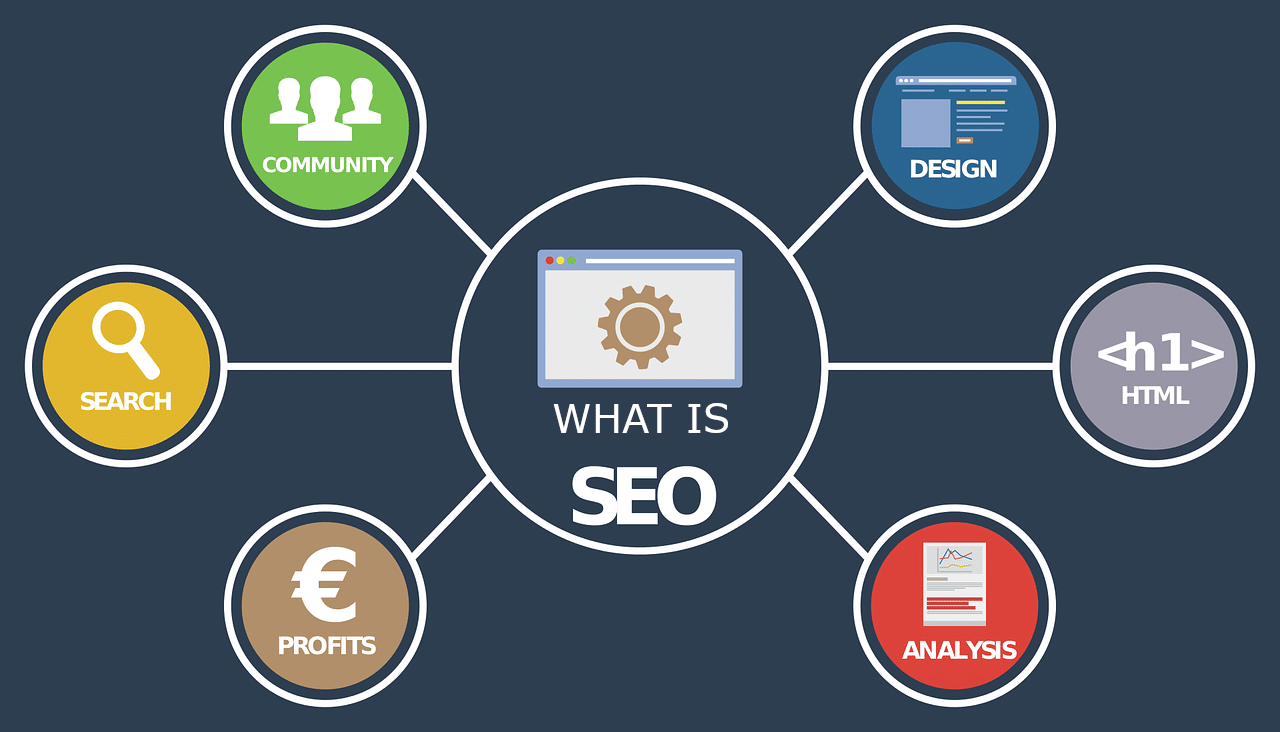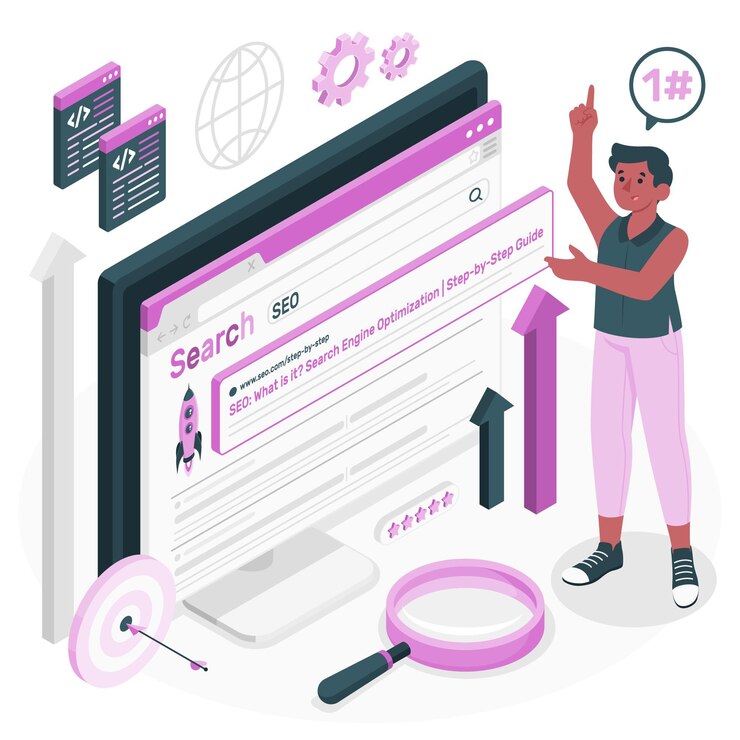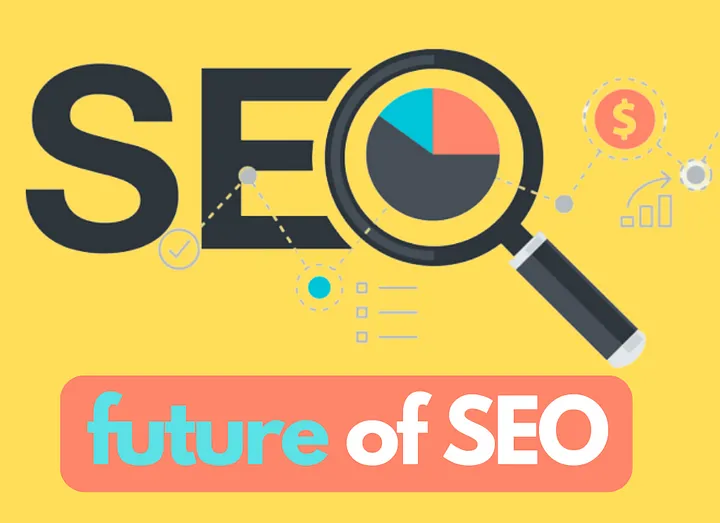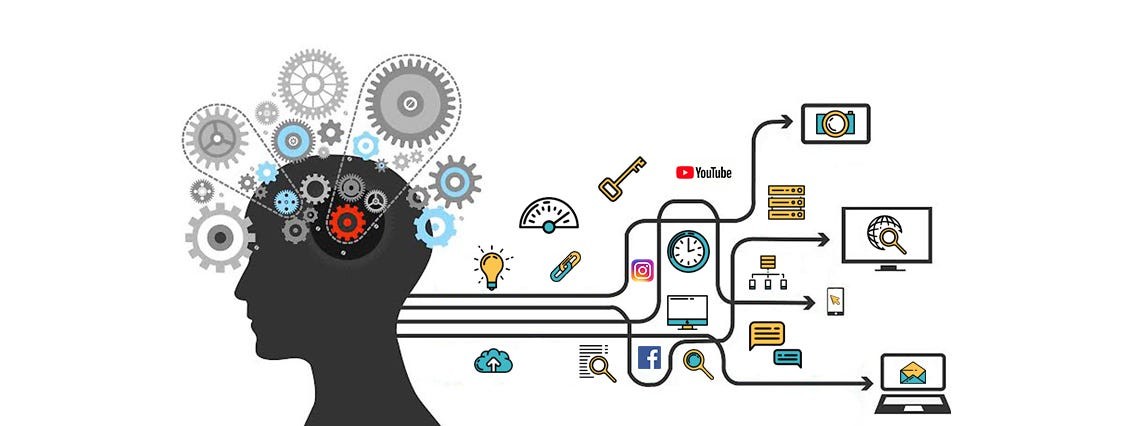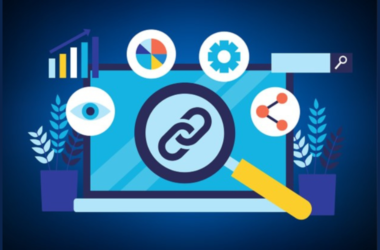1. Introduction to SEO and AI
In the digital landscape, the interplay between Search Engine Optimization (SEO) and Artificial Intelligence (AI) has become increasingly prominent, shaping the strategies businesses adopt to enhance their online visibility and engagement. As more consumers turn to search engines for information, products, and services, understanding the synergy between SEO and AI is critical for marketers and business owners alike. This article delves into the fundamentals of SEO, explores the impact of AI on digital marketing, discusses the importance of SEO in the current landscape, and provides an overview of AI techniques used in optimizing SEO efforts.
1.1 What is SEO?
Search Engine Optimization (SEO) refers to the set of practices aimed at improving the visibility of a website in search engine results pages (SERPs). The primary goal of SEO is to drive organic traffic to a site by enhancing its relevance and authority in the eyes of search engines like Google. SEO encompasses various strategies, including keyword research, on-page optimization, link building, and content creation, all designed to align with search engine algorithms.
By optimizing a website for search engines, businesses can increase their chances of appearing higher in search results, thereby attracting more visitors. The ever-evolving nature of SEO means that staying updated with the latest trends, algorithms, and best practices is essential for maintaining a competitive edge in the digital marketplace.
1.2 The Rise of Artificial Intelligence in Digital Marketing
The rise of Artificial Intelligence in digital marketing has revolutionized how businesses approach their marketing strategies. AI technologies, such as machine learning and natural language processing, enable marketers to analyze vast amounts of data quickly, providing insights that were previously difficult to obtain. These technologies help in predicting consumer behavior, personalizing content, and automating various marketing tasks, leading to improved efficiency and effectiveness.
In SEO, AI is transforming keyword research, content optimization, and performance analysis. For instance, AI tools can identify trending keywords, assess competition, and even suggest content improvements based on user engagement data. As AI continues to advance, its integration into digital marketing strategies will become increasingly vital, allowing businesses to make data-driven decisions that enhance their online presence.
1.3 Understanding the Importance of SEO in 2024
As we progress into 2024, the importance of SEO cannot be overstated. With the exponential growth of the internet and the increasing reliance on digital platforms, consumers are inundated with information, making it crucial for businesses to stand out in the crowded marketplace. Effective SEO strategies ensure that a company’s website appears at the top of search results, leading to increased visibility and credibility.
In an era where user experience is paramount, search engines are prioritizing sites that offer high-quality, relevant content and seamless navigation. Additionally, the growing emphasis on mobile optimization and voice search is reshaping SEO practices, necessitating that businesses adapt to these trends to remain competitive. Companies that invest in robust SEO strategies will not only attract more organic traffic but also enhance their brand reputation and foster customer loyalty.
1.4 Overview of AI Techniques in SEO
AI techniques are increasingly becoming integral to SEO, providing innovative solutions to traditional challenges. One of the key applications of AI in SEO is predictive analytics, which allows marketers to forecast trends and consumer behavior based on historical data. This insight enables businesses to create content that resonates with their audience and meets their needs. Additionally, AI-driven tools can enhance keyword research by analyzing search patterns and identifying relevant keywords that competitors may overlook.
Natural Language Processing (NLP) is another AI technique transforming SEO by enabling search engines to understand the context and intent behind user queries better. This advancement has led to a shift towards optimizing content for user intent rather than just specific keywords. Furthermore, AI can streamline technical SEO by automating site audits, monitoring backlinks, and assessing website performance, allowing marketers to focus on strategic decision-making. As AI continues to evolve, its role in SEO will likely expand, offering even more sophisticated tools and techniques to enhance digital marketing efforts.
2. The Future of SEO: Trends and Predictions
As the digital landscape continues to evolve, so does the field of Search Engine Optimization (SEO). Understanding the future of SEO is crucial for businesses and digital marketers aiming to maintain their competitive edge. In this section, we will explore key trends, the role of artificial intelligence, how AI is reshaping strategies, and future techniques to watch, ensuring that your approach to SEO is both effective and future-proof.
2.1 Key Trends Shaping the Future of SEO
Several key trends are set to influence the future of SEO significantly. Voice search optimization is one of the most prominent trends, as more users turn to smart speakers and voice-activated devices to conduct searches. This shift requires a focus on natural language processing and long-tail keywords that reflect conversational queries. Additionally, mobile-first indexing continues to gain importance, with Google prioritizing mobile-optimized websites in its rankings. As mobile traffic increases, businesses must ensure their sites are responsive and user-friendly across various devices.
Another critical trend is the growing importance of user experience (UX). Search engines are placing greater emphasis on factors such as page load speed, mobile usability, and overall site navigation. Websites that offer seamless, engaging experiences are more likely to rank higher in search results. Furthermore, video content is becoming increasingly vital in SEO strategies, as consumers gravitate towards visual content for information. Video SEO involves optimizing titles, descriptions, and tags to improve visibility on platforms like YouTube and within search engines.
Finally, the integration of local SEO is essential for businesses aiming to attract nearby customers. With the rise of “near me” searches, optimizing for local intent through Google My Business, local keywords, and customer reviews can significantly enhance visibility in local search results.
2.2 The Role of AI in Predicting SEO Trends
Artificial Intelligence (AI) is playing an increasingly influential role in shaping SEO strategies. AI algorithms can analyze vast amounts of data to identify patterns and trends that human analysts might miss. For example, AI tools can predict fluctuations in search behavior, allowing marketers to adjust their strategies proactively. These predictive analytics enable businesses to stay ahead of competitors by adapting to changes in user intent and search algorithms.
Moreover, AI-driven tools can enhance keyword research by providing insights into emerging keywords and phrases that are gaining traction among users. This information helps marketers create content that aligns with current trends, ensuring their websites remain relevant and discoverable. By leveraging AI in their SEO strategies, businesses can optimize their content more effectively, focusing on topics that resonate with their target audience.
AI is also streamlining the content creation process. Natural Language Generation (NLG) tools can assist in generating high-quality content at scale, while AI-powered content optimization tools provide recommendations for improving readability and engagement. These technologies not only save time but also help ensure that content meets the evolving preferences of users and search engines alike.
2.3 How AI is Reshaping SEO Strategies
AI is revolutionizing SEO strategies by enabling more personalized and data-driven approaches. With the capability to analyze user behavior and preferences, AI helps businesses tailor their SEO efforts to meet the specific needs of their target audience. For instance, machine learning algorithms can identify which types of content resonate most with users, allowing marketers to create more relevant and engaging material.
Additionally, AI-powered chatbots and virtual assistants are improving user interaction on websites, leading to higher engagement rates. These tools can answer common queries in real-time, providing users with instant information and reducing bounce rates. As a result, websites that leverage AI to enhance user interaction are likely to see improvements in their search rankings due to better user satisfaction.
Furthermore, AI is enhancing link-building strategies by analyzing backlink profiles and identifying authoritative sites within a niche. This information allows businesses to focus their efforts on building relationships with high-quality websites, improving their credibility and visibility in search results. By utilizing AI in link-building efforts, companies can create a more robust online presence that aligns with search engine algorithms.
2.4 Future SEO Techniques to Watch
Looking ahead, several SEO techniques are poised to gain traction in the coming years. One notable technique is semantic search optimization, which focuses on the meaning behind search queries rather than just the keywords used. As search engines become more sophisticated, understanding user intent and context will be essential for effective SEO strategies. This shift requires marketers to develop content that provides comprehensive answers to user queries, incorporating related concepts and synonyms.
Another emerging technique is the use of structured data to enhance visibility in search results. By implementing schema markup, businesses can provide search engines with more context about their content, potentially leading to rich snippets and improved click-through rates. Structured data not only helps search engines understand content better but also enhances the user experience by presenting information in a more accessible format.
3. AI-Driven SEO Techniques
In the fast-evolving landscape of digital marketing, the integration of artificial intelligence (AI) into Search Engine Optimization (SEO) has transformed the way businesses approach online visibility. AI-driven SEO techniques leverage advanced technologies to analyze data, optimize content, and enhance user experience, ultimately leading to better search rankings. As search engines become increasingly sophisticated, understanding AI-driven SEO techniques is crucial for marketers looking to stay ahead of the competition. These techniques not only streamline traditional SEO processes but also offer insights that enable businesses to make data-driven decisions, resulting in more effective marketing strategies and improved ROI.
3.1 Understanding AI-Powered SEO Tools
AI-powered SEO tools have become essential for digital marketers aiming to enhance their online presence. These tools utilize algorithms that analyze vast amounts of data, allowing marketers to identify trends, keywords, and user behaviors with unprecedented precision. For instance, tools like SEMrush and Ahrefs harness AI to provide insights on keyword performance, backlinks, and competitive analysis. By understanding how these tools function, marketers can better tailor their content strategies to align with user intent, ensuring that their websites are optimized for both search engines and users. Moreover, the predictive capabilities of AI tools can forecast changes in search algorithms, helping marketers adapt their strategies proactively.
3.2 Machine Learning Algorithms in SEO
Machine learning (ML), a subset of AI, plays a pivotal role in modern SEO practices. ML algorithms analyze user data to learn patterns and improve search engine algorithms over time. For instance, Google’s RankBrain uses machine learning to better understand the context behind search queries, allowing it to deliver more relevant results. By incorporating machine learning into SEO strategies, marketers can optimize their content to match user intent more closely, increasing the chances of higher rankings. Additionally, ML can help identify emerging trends in search behavior, enabling businesses to create timely and relevant content that resonates with their audience. The ability to analyze and interpret vast data sets makes machine learning a powerful ally in achieving SEO success.
3.3 Natural Language Processing (NLP) and SEO
Natural Language Processing (NLP) is another critical component of AI-driven SEO techniques. NLP enables machines to understand and interpret human language in a meaningful way, which is vital for optimizing content for search engines. With advancements in NLP, search engines can comprehend the nuances of language, including synonyms, context, and intent behind user queries. This understanding allows search engines to deliver more relevant search results, making it essential for marketers to adopt NLP best practices in their content strategies. By creating content that answers specific user queries in natural language, businesses can enhance their chances of appearing in featured snippets and voice search results, ultimately driving more organic traffic to their websites.
3.4 The Impact of AI on SEO Performance Metrics
The integration of AI into SEO strategies has significantly impacted key performance metrics that determine the effectiveness of online marketing efforts. With AI-driven tools, marketers can gain deeper insights into metrics such as click-through rates (CTR), bounce rates, and conversion rates. For example, AI can analyze user engagement data to identify which types of content resonate most with audiences, allowing marketers to refine their strategies accordingly. Furthermore, AI enhances the ability to track and measure SEO performance in real time, enabling businesses to make data-driven adjustments on the fly. As a result, marketers can achieve a more accurate understanding of their SEO efforts, leading to better optimization strategies and improved overall performance in search engine rankings.
4. Benefits of Using AI in SEO Strategies
In today’s digital landscape, businesses and marketers are increasingly turning to artificial intelligence (AI) to refine their search engine optimization (SEO) strategies. The benefits of integrating AI into SEO practices are manifold, as it allows for greater efficiency, enhanced data analysis, and improved decision-making.
As search engines evolve and algorithms become more sophisticated, leveraging AI tools can provide a competitive edge, enabling businesses to optimize their content and outreach effectively. This article will delve into the specific advantages of utilizing AI in SEO, highlighting enhanced keyword research, improved content optimization, task automation, and improved user experience.
4.1 Enhanced Keyword Research with AI
Keyword research is the foundation of any successful SEO strategy. With AI, businesses can conduct more extensive and accurate keyword analysis. Traditional keyword research methods often involve manual analysis, which can be time-consuming and limited in scope. In contrast, AI-powered tools can analyze vast amounts of data in real-time, identifying trending keywords, search intent, and user behavior patterns. These tools can suggest long-tail keywords that may not be immediately apparent, allowing businesses to target niche markets and optimize their content accordingly.
Additionally, AI can help identify semantic keywords related to primary terms, enhancing the content’s relevance and improving its chances of ranking higher on search engine results pages (SERPs). As a result, businesses can create more targeted content that resonates with their audience, driving organic traffic and improving conversion rates.
4.2 Improved Content Optimization Through AI
Content optimization is crucial for ensuring that web pages are relevant and engaging to users. AI technologies, such as natural language processing (NLP) and machine learning, can analyze existing content and provide recommendations for improvement. These AI tools can assess factors such as readability, keyword density, and overall structure.
By analyzing top-ranking competitors’ content, AI can identify gaps in topics, suggest additional subtopics, and recommend how to enhance the user experience. Furthermore, AI can help tailor content to match user intent, ensuring that it meets the needs of the audience and aligns with search engine algorithms. This level of optimization not only improves the likelihood of achieving higher rankings but also enhances user engagement, as visitors are more likely to find relevant and informative content that meets their expectations.
4.3 Automating SEO Tasks with AI Tools
Automation is a game-changer in the realm of SEO, enabling marketers to focus on strategic initiatives rather than mundane tasks. AI-powered tools can automate various SEO processes, such as tracking keyword rankings, analyzing backlinks, and generating reports. For instance, platforms like SEMrush and Moz use AI to provide insights into a website’s performance, offering suggestions for improvement without manual intervention.
Additionally, automated audits can identify technical SEO issues, such as broken links and slow page speeds, allowing businesses to address these concerns proactively. By streamlining these tasks, businesses can save time, reduce human error, and allocate resources to more critical areas of their SEO strategy. Ultimately, automation through AI tools enhances efficiency and enables businesses to stay ahead in the ever-evolving digital landscape.
4.4 How AI Can Improve User Experience in SEO
User experience (UX) is a critical factor in SEO, as search engines prioritize content that satisfies user intent and provides value. AI can significantly enhance UX by analyzing user interactions and behavior on websites. Through machine learning algorithms, AI can track how visitors navigate a site, identifying bottlenecks and areas where users may be dropping off.
This data can inform website design improvements, ensuring that users have a seamless experience. Additionally, AI can personalize content recommendations based on user preferences and past behavior, increasing engagement and time spent on site. Features such as chatbots and voice search optimization are other examples of how AI enhances UX. By focusing on improving user experience through AI, businesses can foster customer loyalty, reduce bounce rates, and ultimately drive higher conversion rates, which are all essential for achieving long-term SEO success.
5. The Role of Data in AI-Driven SEO
In the rapidly evolving landscape of digital marketing, the integration of artificial intelligence (AI) into search engine optimization (SEO) is reshaping the strategies businesses employ to enhance their online visibility. At the core of this transformation is data, which serves as the backbone of AI-driven SEO practices.
By leveraging vast amounts of data, businesses can gain actionable insights that inform their SEO strategies, allowing them to stay ahead of the competition. This article delves into the various dimensions of data’s role in AI-driven SEO, including its importance, utilization of big data, the impact of predictive analytics, and the mechanisms through which AI analyzes data for optimization purposes.
5.1 Importance of Data in SEO
Data is a critical asset in the world of SEO. It enables businesses to understand user behavior, preferences, and search patterns, which are essential for crafting effective SEO strategies. By analyzing data from various sources, such as website analytics, social media interactions, and keyword performance, businesses can identify trends that inform their content creation, link-building, and overall SEO efforts.
The importance of data extends beyond mere metrics; it allows marketers to create targeted, personalized experiences for users. This level of customization not only improves user engagement but also boosts search engine rankings, as search engines prioritize websites that provide valuable and relevant content. Therefore, a data-driven approach to SEO is no longer optional; it is a necessity for businesses striving to improve their online presence.
5.2 Utilizing Big Data for SEO Insights
Big data has revolutionized the way businesses approach SEO. With the ability to analyze massive datasets, organizations can uncover insights that were previously unattainable. For instance, big data enables the examination of user behavior patterns across multiple platforms, providing a comprehensive understanding of how audiences interact with content.
This information can guide keyword optimization, helping businesses identify high-value keywords that resonate with their target audience. Additionally, big data analytics tools can assess the performance of various SEO tactics, allowing marketers to make data-backed decisions about where to allocate resources. By harnessing the power of big data, businesses can not only enhance their SEO strategies but also achieve greater ROI on their marketing efforts.
5.3 Predictive Analytics in SEO: A Game Changer
Predictive analytics is emerging as a game changer in the SEO landscape, providing businesses with the ability to forecast trends and user behavior. By employing machine learning algorithms to analyze historical data, businesses can identify patterns that predict future actions. For example, predictive analytics can help determine which keywords are likely to gain traction, enabling businesses to optimize their content accordingly.
This proactive approach not only saves time and resources but also positions businesses to capitalize on emerging trends before their competitors do. Furthermore, predictive analytics can enhance user experience by anticipating user needs, thereby improving content relevance and driving organic traffic. In a world where digital marketing is increasingly competitive, the ability to predict and adapt to changes is invaluable.
5.4 How AI Analyzes Data for SEO Optimization
AI plays a pivotal role in analyzing data for SEO optimization, transforming how businesses interpret and act on information. Through machine learning algorithms, AI can process vast amounts of data at incredible speeds, identifying trends and anomalies that human analysts might overlook. For instance, AI can evaluate user engagement metrics, such as click-through rates and bounce rates, to determine which content is resonating with audiences.
Additionally, AI-driven tools can provide recommendations for optimizing on-page elements like meta tags and content structure, ensuring that websites adhere to best SEO practices. By automating data analysis and providing actionable insights, AI empowers businesses to refine their SEO strategies continuously, enhancing their ability to adapt to ever-changing search engine algorithms. As AI technology continues to advance, its role in SEO optimization will only become more pronounced, making it essential for businesses to embrace this innovation for long-term success.
6. Content Creation and Optimization
In the rapidly evolving digital landscape, content creation and optimization have become crucial for businesses looking to engage their audience and improve their online presence. The demand for high-quality, relevant content is at an all-time high, and companies are leveraging various tools and techniques to meet this demand. This section delves into the ways artificial intelligence (AI) is revolutionizing content creation, the best practices for optimizing content, and the importance of maintaining a human touch amidst technological advancements.
6.1 AI-Powered Content Creation Tools
Artificial intelligence has significantly transformed content creation, making it faster and more efficient. AI-powered content creation tools harness natural language processing (NLP) and machine learning algorithms to generate text, create graphics, and even compose music. These tools can produce articles, blog posts, and social media content with remarkable speed and accuracy, allowing businesses to scale their content efforts without sacrificing quality.
Tools such as OpenAI’s ChatGPT, Jasper, and Copy.ai are popular for generating compelling content tailored to specific audiences. They analyze vast amounts of data to understand trends, preferences, and user behavior, enabling marketers to create targeted content that resonates with their audience. By integrating AI-powered tools into their content strategies, businesses can not only save time but also improve their content’s relevance and engagement levels.
6.2 Enhancing Content with AI Technologies
AI technologies can enhance existing content by providing insights into performance metrics, user engagement, and content gaps. Tools that utilize machine learning can analyze user interactions with content to determine what resonates most with audiences. This data-driven approach allows content creators to refine their messaging, adjust tone, and modify formats based on real-time feedback.
Furthermore, AI can assist in personalizing content for individual users, recommending articles or products based on previous interactions and preferences. This level of customization helps businesses build stronger relationships with their audience and increases the likelihood of conversions. Additionally, AI tools can assist in optimizing multimedia elements, such as images and videos, ensuring that they are aligned with SEO best practices and tailored to enhance user experience.
6.3 SEO Best Practices for AI-Generated Content
Creating AI-generated content is not enough; it must also be optimized for search engines to ensure visibility and reach. SEO best practices are essential in this context. This includes conducting keyword research to identify relevant keywords and phrases that potential readers are searching for. Incorporating these keywords naturally within the content helps search engines understand its context and relevance.
Furthermore, structuring content with appropriate headings (H1, H2, H3) improves readability and aids in SEO optimization. Using meta descriptions, alt text for images, and internal linking can also enhance search engine rankings. While AI can generate content at scale, it is vital to review and edit the output to ensure it adheres to SEO guidelines and aligns with brand voice and messaging. Regularly updating content based on performance metrics can also help maintain its relevance and effectiveness.
6.4 Balancing Human Touch and AI in Content
While AI technologies offer substantial advantages in content creation and optimization, it is essential to maintain a balance between automated and human-generated content. The human touch adds authenticity, emotional resonance, and creativity that AI cannot replicate. Personal stories, insights, and unique perspectives contribute to a deeper connection with the audience.
Businesses should leverage AI for efficiency and data-driven insights while ensuring that human creativity and intuition guide the final output. This approach not only enhances the quality of content but also ensures that it remains relatable and engaging for the target audience. Ultimately, finding this balance will enable brands to harness the power of technology without losing the personal touch that resonates with consumers.
7. Conclusion
As we arrive at the conclusion of our discussion on artificial intelligence and its profound impact on search engine optimization (SEO), it becomes clear that this technology is not just a fleeting trend but a fundamental shift in how we approach digital marketing. Throughout this article, we have explored the multifaceted ways in which AI enhances the SEO landscape, from improving search engine algorithms to personalizing user experiences. With AI tools, marketers can now analyze vast amounts of data, enabling them to make data-driven decisions that significantly improve their strategies. The integration of AI into SEO practices signifies a future where technology and marketing converge to create more effective, engaging, and user-centric content.
7.1 Recap of Key Points on AI in SEO
In summary, the key points surrounding AI in SEO can be categorized into several significant themes. First and foremost, AI’s ability to analyze and process vast datasets allows marketers to gain insights into user behavior, preferences, and search patterns. This capability leads to more precise targeting and the creation of content that resonates with the intended audience. Furthermore, AI tools such as natural language processing (NLP) enable search engines to understand context and intent better, resulting in more relevant search results.
Machine learning algorithms continuously adapt to changes in user behavior, helping marketers stay ahead of the curve. Additionally, the automation of mundane tasks, such as keyword research and competitor analysis, frees up time for SEO professionals to focus on strategic initiatives, fostering innovation within their organizations. As we recap these points, it’s clear that AI is not merely a tool but a transformative force in the realm of SEO.
7.2 Future Outlook: AI and SEO Integration
Looking ahead, the integration of AI in SEO is set to evolve further, presenting exciting opportunities for digital marketers. As AI technologies advance, we can expect to see even more sophisticated algorithms capable of understanding complex queries and delivering highly relevant results. For instance, voice search, powered by AI, is on the rise, prompting businesses to adapt their SEO strategies to accommodate conversational keywords and phrases.
Additionally, the growth of AI-driven content creation tools suggests that the generation of high-quality, SEO-optimized content will become more efficient and accessible. However, this also raises questions about originality and authenticity, as businesses will need to balance automated content generation with genuine human creativity. Moreover, as search engines increasingly prioritize user experience, AI will play a crucial role in optimizing site performance, enhancing page load speeds, and improving mobile responsiveness. The future of SEO, intertwined with AI advancements, promises to create a landscape where businesses can thrive by leveraging technology to meet user needs more effectively.
7.3 Final Thoughts on the Future of SEO
In conclusion, the future of SEO is undoubtedly intertwined with the advancements in artificial intelligence. As we embrace this technological shift, it is essential for marketers to remain agile and open to adopting new tools and methodologies that AI presents. The fusion of AI and SEO will not only enhance efficiency but will also foster a deeper understanding of consumer behavior and preferences. Businesses that harness the power of AI will be better positioned to create personalized experiences that engage users on a more meaningful level.
However, it is crucial to approach AI with a balanced perspective, ensuring that human creativity and ethical considerations remain at the forefront of SEO strategies. By doing so, we can navigate the evolving digital landscape while maintaining the integrity and authenticity of our content. As we look to the future, embracing AI as a partner in SEO will be vital for driving success and achieving long-term growth in an ever-competitive online environment.




